#house of Valois-Angoulême
Explore tagged Tumblr posts
Text
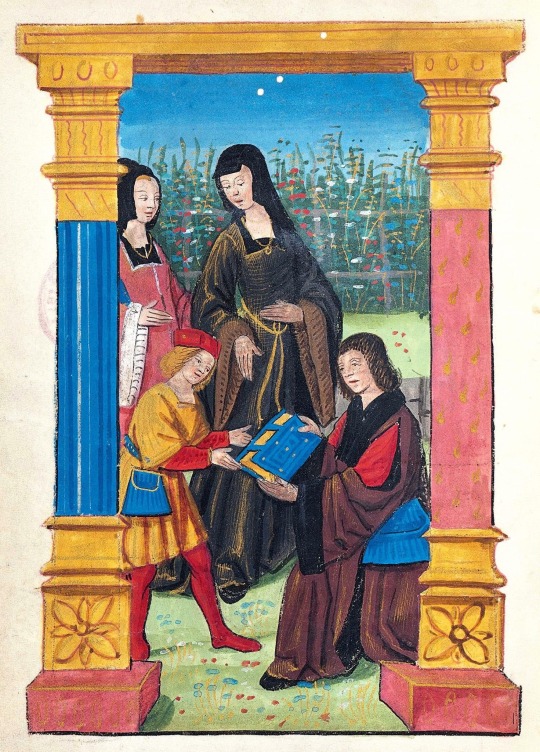
François I received a book in the presence of his mother, Louise de Savoy, and sister, Marguerite d’Angoulême.
Date: 1503.
Source: National Library of France
Description taken from here:*
“Master of Philippe de Gueldre, "Antoine Vérard presents his book to François d'Angouleme, in the presence of Louise de Savoie and Marguerite d'Angoulême, in Octavien de Saint-Gelais, Le Séjour d'honneur, Paris, Antoine Vérart
BnF, Rare Book Reserve, Venom 2239, fol. 1st
In 1506, after his engagement to Claude de France, daughter of Louis XII, François d’Angouleme is summoned to court as heir to the throne. It is no doubt on this occasion that the Parisian bookwire Antoine Vérard is preparing for him a personalized copy of his edition of the Séjour d'Honneur, allegory describing the court of Charles VIII. In the light of dedication, the young prince receives the volume of Vérard's hands, under the gaze of his mother, Louise de Savoie, and a young girl who is undoubtedly his sister, Marguerite.”
*facebook group entitled “enluminures Europe—VIe -XVIe s.”
#16th century France#16th century#XVIe siècle#enluminures#Valois-Angoulême dynasty#Valois dynasty#House of Valois#House of Valois-Angoulême#Maison de Valois#Maison de Valois-Angoulême#Louise de Savoyie#Louise of Savoy#marguerite de navarre#Marguerite d’Angouleme#François Ier#François I#Francis I of France#François de France#primary sources#illuminated manuscript#Louis XII#claude de france
9 notes
·
View notes
Text


"Commémoracion et advertissement de la mort de... Madame Anne, deux foiz royne de France, duchesse de Bretaigne... ; complainte que fait [Pierre Choque, dit] Bretaigne ». Pierre Choque, premier héraut et roi d'armes d'Anne de Bretagne, vers 1514, Paris."
10 notes
·
View notes
Text

Madeleine of France, Queen of Scotland (1520-1537).
#treaty of rouen#kingdom of scotland#house of stewart#rìogachd na h-alba#house of stuart#kinrick o scotland#full length portrait#royaume d’ecosse#royaume de france#maison de valois#Valois angoulême#summer queen#fille de france#queen consort#reine d’ecosse#madeleine of france#full-length portrait#house of valois#royalty
19 notes
·
View notes
Text
Fantasy Guide to Dowager Queens and Queen Mothers
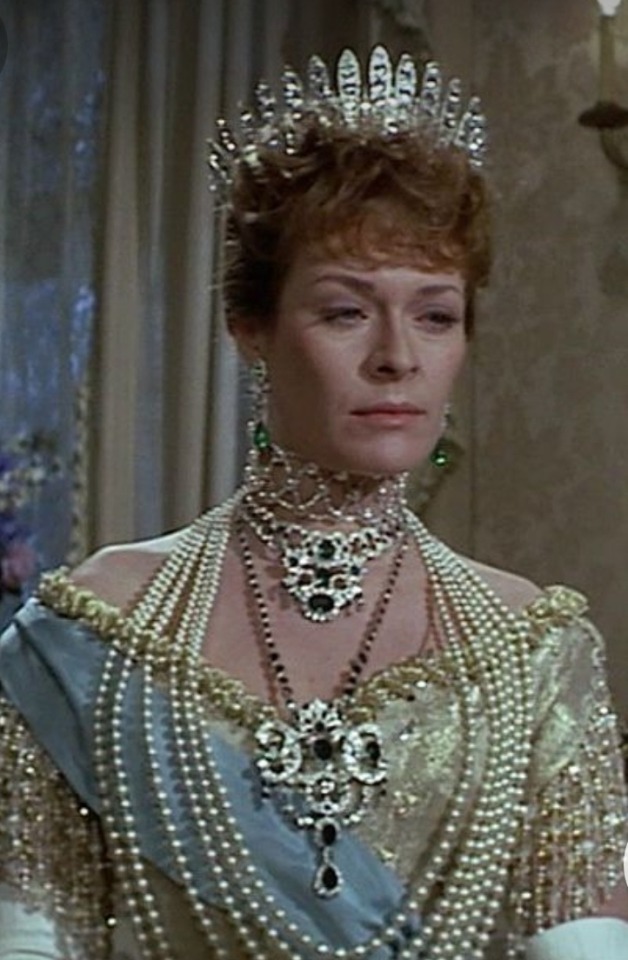
The King is dead. Long live the next monarch (I guess). Their eldest child is now monarch, their other kids have probably started up lives elsewhere or started careers in the military or such. But what happens their Queen?
Queen Mother vs Dowager Queen
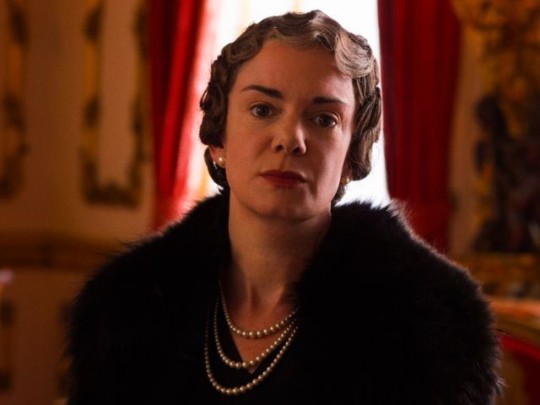
There are two titles the now widowed Queen can take after her husband dies. The first is Dowager Queen or Queen Dowager, which basically means ex-Queen or the previous Queen. The second is Queen Mother, which is the title which can be taken by the mother of the next monarch (this title cannot be granted to step-mothers). Ex-Queens who mothered the current monarch can go for either title if they wish. As for addressing a former Queen, it will still be "Your Majesty" and she would simply be referred to as Queen Firstname.
Life and Perks
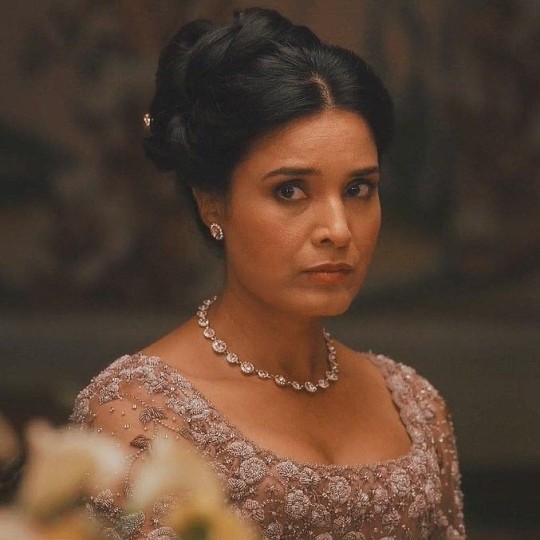
The former Queen will move out of the palace after a few weeks. She will take up residence at one of the Crown's many palaces or houses, able to keep on as many servants as she wants - or that is paid for. She can typically do whatever she likes now, she can travel, she can live at court, she can spend her life away from it all in the country. She will have to surrender her official jewelry which sucks. This can lead to trouble such as the tension between Dowager Empress Maria Feodorovna and Empress Alexandra. Dowager Queens and Queen Mothers usually inherited lands and estates from their husband's will, which basically is a way to support them and their lifestyle. They may also recieve money from the Crown annually. However, some Dowager Queens faced some trouble if the new monarch didn't want to provide for them. This often led to conflict.
Duties

The former Queen might also be called in to help the Crown. She might be sent on diplomatic state visits, act as a diplomatic hostess, advise the new monarch and stand in for them at events if needed. The former Queen will also take an active role in the family if she wishes. Some Dowager Queens and Queen Mothers might act as Regents for underage monarchs.
Prospects
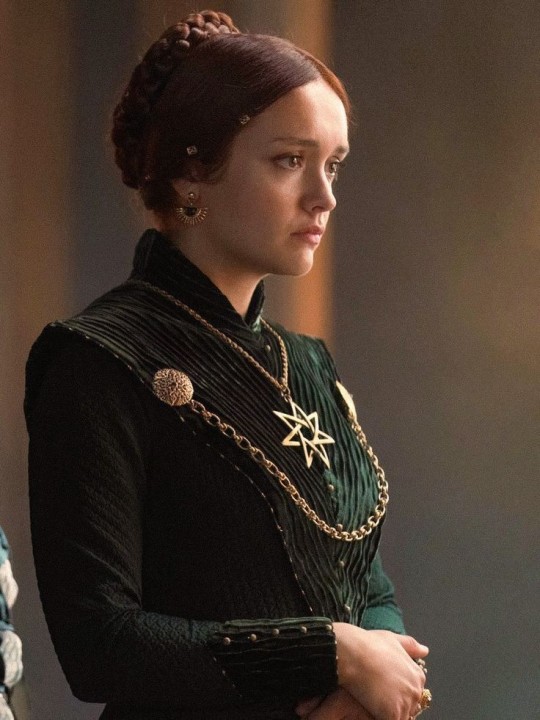
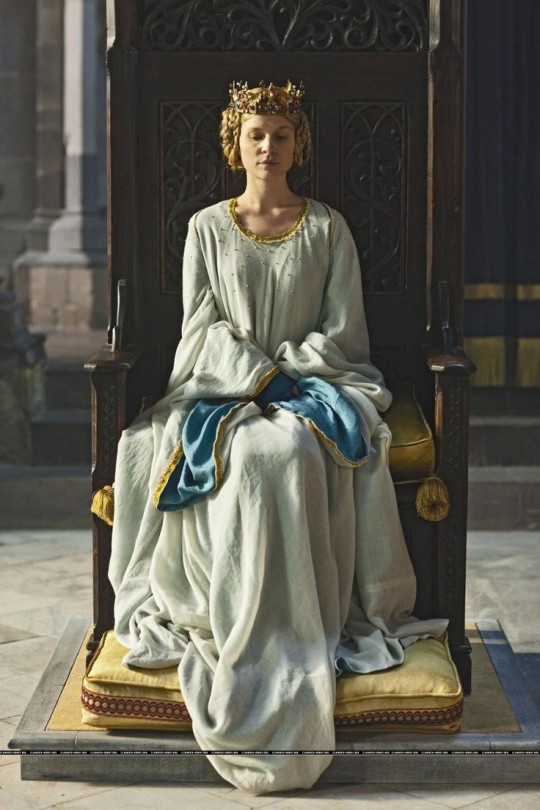
Being a Dowager or the Queen Mother is a relatively cushy job. While you lose some influence and prestige, you are still highly ranked but with less responsibility. Most ex-Queens spend their time relaxing and treating themselves while some stayed relevant with taking on full calenders of duties and events. Mostly, as long as you help out occasionally, live a quiet life, you will pretty much have a nice life. However, there have been instances of Dowager Queens and Queen Mothers going a little off the rails. A Dowager Queen without children might leave behind her new country and go home if she wanted to. She would remain Dowager Queen with all the perks unless she remarried. Some young widowed Queens remarried to varying successes (Catherine of Valois, Isabella of Angoulême, Kathryn Parr, Queen Margaret Tudor, Mary Tudor Queen of France).
#Fantasy Guide to Dowager Queens and Queen Mothers#Queen mothers#Dowager Queens#Fantasy Guide#writing#writeblr#writing resources#writing reference#writer#writer's problems#wtwcommunity#writing reference writing resources#Writing reference writing help#Writing help#writing research#Research#Reference#Writing guide
348 notes
·
View notes
Text
Below the cut I have made a list of each English and British monarch, the age of their mothers at their births, and which number pregnancy they were the result of. Particularly before the early modern era, the perception of Queens and childbearing is quite skewed, which prompted me to make this list. I started with William I as the Anglo-Saxon kings didn’t have enough information for this list.
House of Normandy
William I (b. c.1028)
Son of Herleva (b. c.1003)
First pregnancy.
Approx age 25 at birth.
William II (b. c.1057/60)
Son of Matilda of Flanders (b. c.1031)
Third pregnancy at minimum, although exact birth order is unclear.
Approx age 26/29 at birth.
Henry I (b. c.1068)
Son of Matilda of Flanders (b. c.1031)
Fourth pregnancy at minimum, more likely eighth or ninth, although exact birth order is unclear.
Approx age 37 at birth.
Matilda (b. 7 Feb 1102)
Daughter of Matilda of Scotland (b. c.1080)
First pregnancy, possibly second.
Approx age 22 at birth.
Stephen (b. c.1092/6)
Son of Adela of Normandy (b. c.1067)
Fifth pregnancy, although exact birth order is uncertain.
Approx age 25/29 at birth.
Henry II (b. 5 Mar 1133)
Son of Empress Matilda (b. 7 Feb 1102)
First pregnancy.
Age 31 at birth.
Richard I (b. 8 Sep 1157)
Son of Eleanor of Aquitaine (b. c.1122)
Sixth pregnancy.
Approx age 35 at birth.
John (b. 24 Dec 1166)
Son of Eleanor of Aquitaine (b. c.1122)
Tenth pregnancy.
Approx age 44 at birth.
House of Plantagenet
Henry III (b. 1 Oct 1207)
Son of Isabella of Angoulême (b. c.1186/88)
First pregnancy.
Approx age 19/21 at birth.
Edward I (b. 17 Jun 1239)
Son of Eleanor of Provence (b. c.1223)
First pregnancy.
Age approx 16 at birth.
Edward II (b. 25 Apr 1284)
Son of Eleanor of Castile (b. c.1241)
Sixteenth pregnancy.
Approx age 43 at birth.
Edward III (b. 13 Nov 1312)
Son of Isabella of France (b. c.1295)
First pregnancy.
Approx age 17 at birth.
Richard II (b. 6 Jan 1367)
Son of Joan of Kent (b. 29 Sep 1326/7)
Seventh pregnancy.
Approx age 39/40 at birth.
House of Lancaster
Henry IV (b. c.Apr 1367)
Son of Blanche of Lancaster (b. 25 Mar 1342)
Sixth pregnancy.
Approx age 25 at birth.
Henry V (b. 16 Sep 1386)
Son of Mary de Bohun (b. c.1369/70)
First pregnancy.
Approx age 16/17 at birth.
Henry VI (b. 6 Dec 1421)
Son of Catherine of Valois (b. 27 Oct 1401)
First pregnancy.
Age 20 at birth.
House of York
Edward IV (b. 28 Apr 1442)
Son of Cecily Neville (b. 3 May 1415)
Third pregnancy.
Age 26 at birth.
Edward V (b. 2 Nov 1470)
Son of Elizabeth Woodville (b. c.1437)
Sixth pregnancy.
Approx age 33 at birth.
Richard III (b. 2 Oct 1452)
Son of Cecily Neville (b. 3 May 1415)
Eleventh pregnancy.
Age 37 at birth.
House of Tudor
Henry VII (b. 28 Jan 1457)
Son of Margaret Beaufort (b. 31 May 1443)
First pregnancy.
Age 13 at birth.
Henry VIII (b. 28 Jun 1491)
Son of Elizabeth of York (b. 11 Feb 1466)
Third pregnancy.
Age 25 at birth.
Edward VI (b. 12 Oct 1537)
Son of Jane Seymour (b. c.1509)
First pregnancy.
Approx age 28 at birth.
Jane (b. c.1537)
Daughter of Frances Brandon (b. 16 Jul 1517)
Third pregnancy.
Approx age 20 at birth.
Mary I (b. 18 Feb 1516)
Daughter of Catherine of Aragon (b. 16 Dec 1485)
Fifth pregnancy.
Age 30 at birth.
Elizabeth I (b. 7 Sep 1533)
Daughter of Anne Boleyn (b. c.1501/7)
First pregnancy.
Approx age 26/32 at birth.
House of Stuart
James I (b. 19 Jun 1566)
Son of Mary I of Scotland (b. 8 Dec 1542)
First pregnancy.
Age 23 at birth.
Charles I (b. 19 Nov 1600)
Son of Anne of Denmark (b. 12 Dec 1574)
Fifth pregnancy.
Age 25 at birth.
Charles II (b. 29 May 1630)
Son of Henrietta Maria of France (b. 25 Nov 1609)
Second pregnancy.
Age 20 at birth.
James II (14 Oct 1633)
Son of Henrietta Maria of France (b. 25 Nov 1609)
Fourth pregnancy.
Age 23 at birth.
William III (b. 4 Nov 1650)
Son of Mary, Princess Royal (b. 4 Nov 1631)
Second pregnancy.
Age 19 at birth.
Mary II (b. 30 Apr 1662)
Daughter of Anne Hyde (b. 12 Mar 1637)
Second pregnancy.
Age 25 at birth.
Anne (b. 6 Feb 1665)
Daughter of Anne Hyde (b. 12 Mar 1637)
Fourth pregnancy.
Age 27 at birth.
House of Hanover
George I (b. 28 May 1660)
Son of Sophia of the Palatinate (b. 14 Oct 1630)
First pregnancy.
Age 30 at birth.
George II (b. 9 Nov 1683)
Son of Sophia Dorothea of Celle (b. 15 Sep 1666)
First pregnancy.
Age 17 at birth.
George III (b. 4 Jun 1738)
Son of Augusta of Saxe-Gotha (b. 30 Nov 1719)
Second pregnancy.
Age 18 at birth.
George IV (b. 12 Aug 1762)
Son of Charlotte of Mecklenburg-Strelitz (b. 19 May 1744)
First pregnancy.
Age 18 at birth.
William IV (b. 21 Aug 1765)
Son of Charlotte of Mecklenburg-Strelitz (b. 19 May 1744)
Third pregnancy.
Age 21 at birth.
Victoria (b. 24 May 1819)
Daughter of Victoria of Saxe-Coburg-Saafield (b. 17 Aug 1786)
Third pregnancy.
Age 32 at birth.
Edward VII (b. 9 Nov 1841)
Daughter of Victoria of the United Kingdom (b. 24 May 1819)
Second pregnancy.
Age 22 at birth.
House of Windsor
George V (b. 3 Jun 1865)
Son of Alexandra of Denmark (b. 1 Dec 1844)
Second pregnancy.
Age 20 at birth.
Edward VIII (b. 23 Jun 1894)
Son of Mary of Teck (b. 26 May 1867)
First pregnancy.
Age 27 at birth.
George VI (b. 14 Dec 1895)
Son of Mary of Teck (b. 26 May 1867)
Second pregnancy.
Age 28 at birth.
Elizabeth II (b. 21 Apr 1926)
Daughter of Elizabeth Bowes-Lyon (b. 4 Aug 1900)
First pregnancy.
Age 25 at birth.
Charles III (b. 14 Nov 1948)
Son of Elizabeth II of the United Kingdom (b. 21 Apr 1926)
First pregnancy.
Age 22 at birth.
380 notes
·
View notes
Text
Favorite royals who were devoted mothers.(3/5)
Louise of Savoy, Duchess of Bourbon.

#louise of savoy#Louise de Savoie#François I#duchess of Bourbon#Duchesse de Bourbon#Claire Foy#House Valois-Angoulême#House Valois#House of Bourbon
6 notes
·
View notes
Text

Reign (2013-2017)
#reign fashion#reign#cw reign#period drama#perioddramaedit#pink lips#black hair#half up hair#white dress#sailing#romantic#romantic aesthetic#couple#toby regbo#adelaide kane#mary queen of scots#mary stuart#house of stuart#house of valois angoulême#house of valois#fraryedit#frary#mary x francis#francis ii of france#source: historical beauty lily#16th century#renaissance#pearl necklace#renaissance france
234 notes
·
View notes
Photo
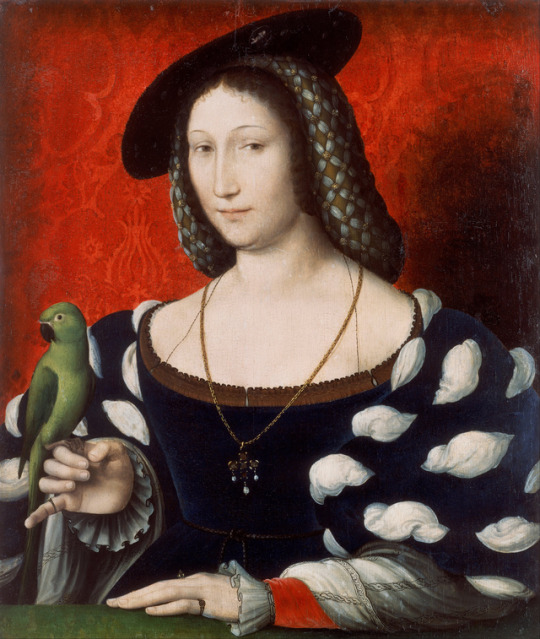
Marguerite de Navarre, by Jean Clouet.
#Marguerite de Navarre#Marguerite of Angoulême#house of valois angouleme#queen of navarre#jean clouet#long live the queue
71 notes
·
View notes
Text


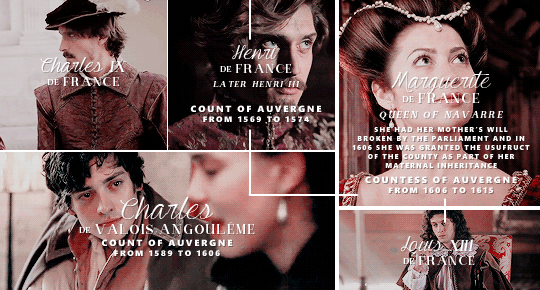
The succession to the county of Auvergne, throughout the 16th and in the early 17th century, encapsulates a series of dynastic conflicts. Catherine de Medici inherited the county from her childless maternal aunt, Anne, duchess of Albany, and then offered it to her son Henri, then duke of Anjou, in 1569. Her daughter Marguerite challenged her will after her death, asserting that as the only surviving child of her late mother, she should have been the recipiendary of the county, which was at the time the property of her bastard nephew, Charles de Valois-Angoulême, only surviving child of her late brother Charles IX and adoptive child of Henri III. She was supported in her efforts by her former husband, Henri IV, who had interests in her winning her case. The new king viewed the matter as the perfect way to tie the soon to be extinguised royal house of Valois to the Bourbon family, by suggesting that Marguerite, childless and divorced, made the Dauphin, future Louis XIII, her heir in the succession. She was eventually granted the usufruct, in large part because her bastard nephew had himself been condemned for treason after actively plotting with his half-sister Henriette d'Entragues and Spain to have the Dauphin replaced by his bastard brother born from the marchionness.
#historyedit#perioddramaedit#documentaryedit#anne de la tour d'auvergne#madeleine de la tour d'auvergne#catherine de medici#charles ix#henri iii#marguerite de france#charles de valois-angoulême#louis xiii#mine#*#16th century#17th century
264 notes
·
View notes
Photo










In February 1515, the new King of France, Francis of Angoulême, known as Francis I of House of Valois had a meeting with Charles Brandon. The Duke of Suffolk was send to France to escort back to England the King’s younger sister Mary, the Dowager Queen of France after the death of King Louis XII.
Francis accused Charles of coming to his country with the intention of marrying in secret his father-in-law’s widow. The English nobleman denied the accusation, but Mary had confessed their plans to him. He promised her that he would do anything in his power to help her achieve her heart’s desire (to marry Charles) but they had to wait.
The Duke went on to tie the knock with Mary, angering not only one, but two kings at the same time: it’s said that Henry knew about his friend’s desire to marry his little sister, but before he went to France, he warned him not to do it without his previous consent. The wedding without his approval enraged the King of France as well.
Charles later (on March 5th, 1515) wrote a letter to Cardinal Wolsey pleading him to talk with the King on his behalf, confessing the secret wedding and imploring him to allow them to marry at court because they had consumed the marriage and they fear she might be pregnant. He also mentioned his meeting with King Francis.
They finally got their official wedding on the 13th of May at Greenwich - with King Henry VIII present.
#henry cavill#Emmanuel Leconte#charles brandon#mary tudor#mary tudor queen of france#francis I#francis i of france#house of valois#my gifs#duke of suffolk
107 notes
·
View notes
Text
On this day in History, Catherine de Médici gives birth to François, later François II, King of France and of Scotland. He was named after his grandfather, François I, King of France, in whose reign he was born.

(Livre de Heures de Catherine de Médicis.)
#françois i#françois ii#king of france#françois II of france#francis II#house of valois-angoulême#maison de valois-angoulême#maison de valois#mary stuart#queen of scots#marie d'écosse#royne de france#reine de france#stuart dynasty#stewart dynasty#house of stewart
12 notes
·
View notes
Text

Marguerite de Valois, Reine de Navarre (1492-1549). Unknown artist.
#royaume de france#royaume de navarre#maison de valois#Marguerite de Valois Angoulême#reine de navarre#vive la reine#full length portrait#Consort royal de Navarre#navarre#maison d'albret#L'Heptaméron#duchesse de berry#duché de berry#la perle des Valois#kingdom of navarre#house of valois#full-length portrait#royalty
9 notes
·
View notes
Text
Henri III deserves better than his reputation.
@microcosme11 who was interested in knowing more about Henri III.
***
Henri III was the last Valois king of France (19/09/1551-02/08/1589) and certainly among the kings whose reputation was the most tarnished. You could say it was trashed by the black legend his enemies quickly wove around him: weak, effeminate, cowardly, treacherous, immoral... This is how he was depicted for centuries. For decades now, however, historians have worked to rediscover a misjudged king and rehabilitated a complex personality who was at odds, in many ways, with the expectations of his century. Henri III had above all a high idea of royal authority, and a modern conception of the state. In particularly difficult circumstances, he managed to avoid the wreck of the monarchy.
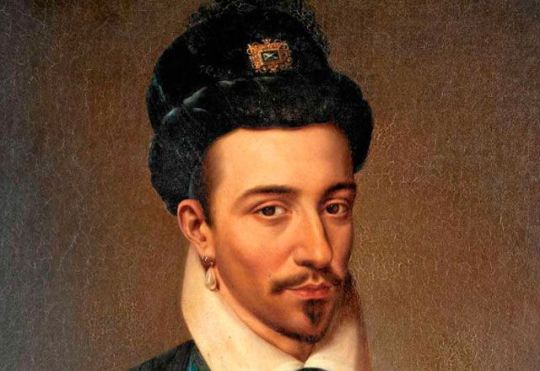
This post will try to be a quick summary of the circumstances of his reign, of his real qualities and personality, of the origin of the "black legend", and of his legacy as a king.
When the future Henri III was born, he wasn't destined for a crown. He was indeed the fourth son of Henri II and Catherine de Medici. Titled Duke of Anjou, he was given a thorough and refined education, as befitted a true prince of the Renaissance. His master Amyot, the most reputed of his time, was able to cultivate qualities that would make Henri a brilliant and eloquent prince " one of the best speakers of his era."
Henri was also Catherine's favorite child. He was good looking, smart, fashionable, an excellent swordsman. Aged only 16, he became Lieutenant General of the Kingdom, and he would soon prove his valor in the battlefield in Jarnac and Moncontour. Elected King of Poland and Grand Duke of Lituania under the name Henryk Walezy, his reign wouldn't last long - his brother Charles IX died without an heir and Henri immediately left Poland for France.
He was crowned on February 13, 1575, and two days later married the beautiful and smart Louise de Vaudémont, a princess of Lorraine, close to the famous and very influent House of Guise.

France was then in a very difficult situation. The Kingdom was divided and devastated by the wars of Religion. The warring parties were backed by foreign powers and France's political and economical condition suffered.
In the late XVIth century, the great lords of the Kingdom still acted like sovereigns of their own in many ways - the feudal order hadn't yet given way to the future absolutism (which would be the later creation of Richelieu and Louis XIII IMHO, in reaction precisely to the Great Lords' excessive capacity for nuisance). Henri III couldn't afford to overtly dismiss or displease them.
He had to stand up to three main parties: the Malcontents, the Protestants (leader: Henri, King of Navarre, his distant cousin), and the Catholics (led by the House of Guise). He knew that the restoration of peace and concord meant he had to get into everybody's good graces- a perilous proposition in such times. His whole life, Henri would have to find a balance. Nobody would be grateful for that. Mindful of his duty and his role as a mediator in the kingdom, he worked to establish the royal authority as effectively sovereign.
He would find enemies everywhere.
He was well spoken, soft spoken, elegant and well mannered: he would be mocked as weak and effeminate. He was clever and always favored diplomacy over shows of brute force: he would be despised for it and depicted as an immoral, cowardly prince. He wasn't as easily accessible as his predecessors: the Great lords didn't like that. When he got closer to the Guise, to appease the most radical Catholics, the Protestants rebelled. When he leaned towards Henri de Navarre, the League reacted violently. The balancing act harmed his reputation.
With the help of his ever present mother Catherine, he initiated a rapprochement with Henri de Navarre while supporting his brother's (François, Duke of Alençon) plans in the Spanish Netherlands: Protestants and Catholics coming together to face a common enemy (the Habsburgs) ? Excellent. That's a lesson Henri IV would remember.
Henri III was, in spite of his rather frail health, a hard worker. In 1584, after seven years of relative peace, strenghtening of the royal authority, and an intense legislative work, he was still childless - and his brother and heir François d'Alençon died of tuberculosis.
This was a great upset in the game.
Because the new heir was Henri de Navarre - leader of the Protestant party. Which of course was unacceptable for the Catholic opinion. Paris, who chose the Ligue, was dangerously agitated.
What a stroke of luck for Henri de Guise!
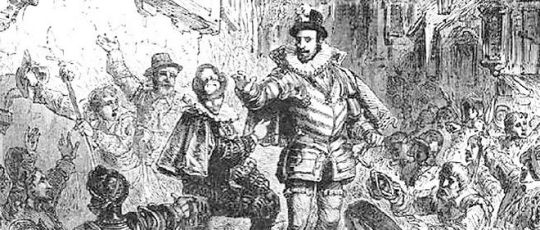
What was named then "La Guerre des Trois Henri" opposed three parties, not two. Although he was apparently allied to the ultra Catholics Guise, Henri III took care not to burn his bridges with the Protestants. The Habsburg support of Henri de Guise wasn't to his taste, and he didn't like the ambitious Duke. And if Navarre (whom he esteemed) was to lose entirely, Guise would become too powerful.
Guise was the first to move; exasperated by the King's caution, the Duke entered Paris in open defiance of the King, with the population cheering him on. Fearing a coup d'Etat, the King sent his own troops to Paris, and what happened was the famous "Journée des Barricades" (Barricade Day), on 13 May 1588.
What happened next ? Henri III took a terrible decision: for the peace of the Kingdom, for France to subsist as a State, for his authority to be maintained, Henri de Guise was to disappear. And there was a way to lure him: afraid that the King would sign peace with Navarre, Henri de Guise went to negotiate with Henri III in Blois. On December 23, Henri III had Henri de Guise assassinated by his own Guard, as well as his brother the Cardinal de Lorraine.
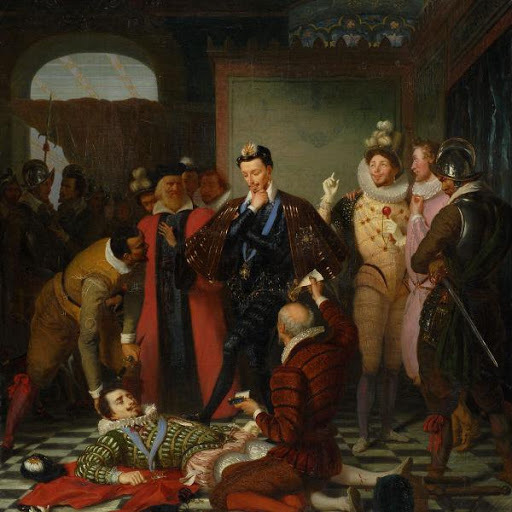
Was the King's opinion and attitude unclear before ? That's cleared now. But as for peace ? Never. The powerful Ligue lashed out in rage . The hatred was open. There were outloud calls of Death to the Tyrant.
Henri III would never see the Ligue destroyed: on the 1st August 1589, a fanatic monk by the name of Jacques Clément would stab him to death.

"This King was a good prince, if he'd met a better century", would write the chronicler Pierre de l'Estoile upon his death. In spite of his peculiar personality and the outburst of hatred he aroused, Henri also showed his qualities.
He had been raised in a humanist background and would protect the world of literature (Montaigne, Du Perron, Desportes); he was rather to be found working in his office with his ministers rather than on the battlefield. Although, when he had to, he was steadfast and brave in battle.
He was smart and usually able of compassion towards his adversaries.
He had faith, and his misfortunes made him find a refuge there. We know he even went on a spiritual retreat into a monastery for a while.
His contemporaries described him as a man who loved women - which was overlooked because he never granted any of his lovers a title of official mistress. He had for Marie de Clèves, Princess of Condé, a platonic, but deep passion, and the depth of his mourning after she brutally passed away in 1574, stunned the Court.
He married Louise de Vaudémont for her charm and her wit rather than for politics.
But in spite of this, the image we've had of him for centuries is indissociable from his "mignons" - effeminate youths clad in excentric outfits and wasting their time in frivolous games. He was painted as homosexual (and therefore despicable) based on pamphlets written by radical leaguers, radical calvinists, Malcontents. The high nobility didn't appreciate his "new ways", the refining of clothes and manners, the new court practices. The Ligue used against him a virulent propaganda, along with calls to rebellion and real campaigns of calumnies. And when he died, the change of dynasty didn't allow for a better, more impartial image to be offered. Queen Louise and the Duchess of Angoulême tried in vain to dispell this ambiguous image. The real culprits were'nt even be punished (Jacques Clément however perished).
And yet. He was the one who wanted concord and national unity in a country torn by wars of religion (he lived four of them). His long and unthanked political action allowed Henri IV to end half a century of cruel civil war.
Was he weak ? It is true he bowed to the many pressures of the Great lords. But he always took back control.
Cowardly ? He wasn't vainglorious. And he proved his personal courage, in the battlefields of his youth as well as at the time of his death (he fought off his killer).
Frivolous and immoral ? He loved pleasures, arts, and feasts. But he also was anxious about his soul and salute.
In the difficulties he had to face, he managed to rule and to leave France a considerable legislative body of work (Code Henri III).
What are some positive aspects of his reign ?
He launched loans to stabilize finances, he reduced the taille (tax), ensured the protection of cities, created offices, taxed luxury, taxed the clergy, revived the textile industry, revised farm leases, created fines for fraudsters, created a body of health officers and an assistance service for the needy and the orphans; he undertook the administrative reorganization of the kingdom, maintained the unity of France by overcoming the worst of wars, both civil and religious, and retained royal legitimacy through a regular transmission of power to Henri IV.
He held on his principle of royal authority and modern conception of the State. He maintained.
I agree with Pierre de l’Estoile.

“Décrié”: condemned, castigated, reviled.
Sources:
Wikipedia
https///www.histoire-pour-tous.fr/histoire-de-france/1481-henri-iii-le-dernier-des-valois.html
Pierre Chevallier: Henri III, roi shakespearien, 1985
Michel Pernot : Henri III, le roi décrié, 2017
Jean-François Solnon: Henri III: un désir de majesté, 2001
#my posts#xvi#henri iii#i'm not a historian#of course i'm far from telling everything this is just a quick defense of a man who deserves better than this sordid notoriety#i'm not saying he was flawless either#but for once he can get some credit#thanks @microcosme11
30 notes
·
View notes
Text
FRAÑSEZ III
Duke of Brittany
(born 1518 - died 1536)

pictured above is a portrait of the Dauphin of France, from the 17th century
-------------------- ~ -------------------- ~ --------------------
SERIES - On this day August Edition: François died on 10 August 1536.
-------------------- ~ -------------------- ~ --------------------
FRANÇOIS was born in 1518 at the Château d'Amboise, in the Loire Valley of France. He was the eldest son of François I, King of France and Klaoda, Duchess of Brittany.
He was born into the Valois-Angoulême branch of the HOUSE OF VALOIS and as the French heir he was from birth the DAUPHIN OF FRANCE. As his mother was the Duchess of Brittany in her own righ, he was also the Breton heir.
As a baby he was betrothed to Princess Mary of England (future Mary I, Queen of England) at that time the only surviving child of Henry VIII, King of England and Infanta Catalina of Aragon. But the very complicated relations between England, France and her relatives of the Holy Roman Empire caused the end of their betrothal.
In 1524 his mother died and he should have succeeded her as the new Duke of Brittany, however as Dauphin he was expected to one day become King of France and the Estates of Brittany did not wish to have a personal union between Brittany and France. So they refused to acknowledge him as Duke of Brittany and instead tried to make his brother Henri, Duke of Orléans as their new Duke.
The next year France was defeated at the Battle of Pavia resulting on his father being captured and held hostage by Karl V, Holy Roman Emperor. To release his father the Treaty of Madrid was signed in which, among other things, was agreed that he and his brother the Duke of Orléans would change places with their father as hostages of the Emperor. As a result they were captives in Spain between 1526-30.
By 1532 the Estates of Brittany finally agreed to recognize him as their rightfull ruler and he was crowned as FRAÑSEZ III, DUKE OF BRITTANY.
However in 1536 he suddenly fell ill after drinking a glass of water. And a couple of days later the Duke of Brittany died at the age of 18, on 10 August 1536, at the Château de Tournon in the River Rhône bank. He was unmarried and did not have any children.
-------------------- ~ -------------------- ~ --------------------
At the time of his death it was believed that he could have been poisoned by orders of Emperor Karl V but nothing was ever proved and the cause of his sudden death is still a mistery.
His younger brother the Duke of Orléans succeeded him as Herri II, Duke of Brittany. And as he also succeeded their father as Henri II, King of France in 1547, Brittany ended up annexed to France for good.
#fransez iii#françois iii#duke of brittany#dauphin of france#house of valois#valois#french royals#french royalty#royals#royalty#monarchies#monarchy#royal history#french history#european history#world history#history#16th century#king francis#queen claude#henry viii#charles v#history with laura
4 notes
·
View notes
Photo
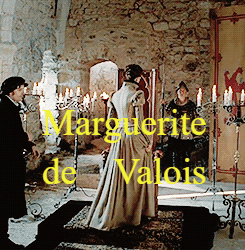
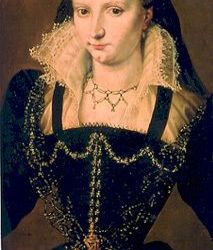
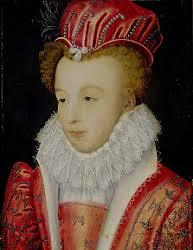
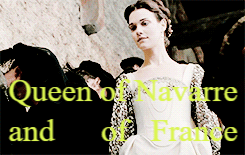
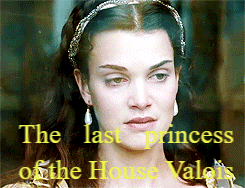
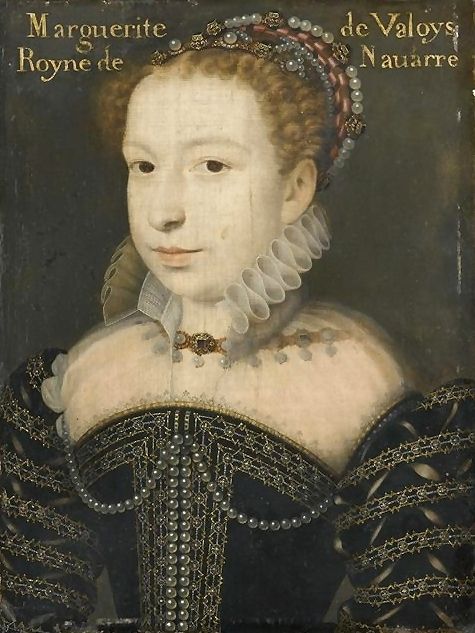
Hɪsᴛᴏʀɪᴄᴀʟ ᴄʜᴀʀᴀᴄᴛᴇʀs ᴡʜᴏ ᴅᴇsᴇʀᴠᴇᴅ ʙᴇᴛᴛᴇʀ [₈ /₁₀]﹕
● Mᴀʀɢᴜᴇʀɪᴛᴇ ᴅᴇ Vᴀʟᴏɪs﹐ Qᴜᴇᴇɴ ᴏғ Nᴀᴠᴀʀʀᴇ ᴀɴᴅ Fʀᴀɴᴄᴇ ●
● 𝖥𝖺𝗇 𝖼𝖺𝗌𝗍: ●
𝐶𝑎𝑚𝑖𝑙𝑙𝑒 𝑅𝑢𝑡𝘩𝑒𝑟𝑓𝑜𝑟𝑑 𝑎𝑠 𝑙𝑎 𝑅𝑒𝑖𝑛𝑒 𝑀𝑎𝑟𝑔𝑜𝑡.
#Marguerite de Valois#Margaret of Valois#Queen Margaret of France#Queen Margot#La reine Margot#House of Valois#Valois-Angoulême#Queen of Navarre#Henri IV#Henry IV#Queen Marguerite#Camille Rutherford
24 notes
·
View notes
Text

Reign (2013-2017)
#reign fashion#reign#cw reign#period drama#perioddramaedit#not actually historical costumes#curls#black hair#adelaide kane#toby regbo#mary stuart#house of stuart#house of valois#mary queen of scots#francis ii of france#house of valois angoulême#nature#fraryedit#frary#yellow dress#couple#romantic aesthetic#romantic#source: historical beauty lily#16th century#renaissance
188 notes
·
View notes